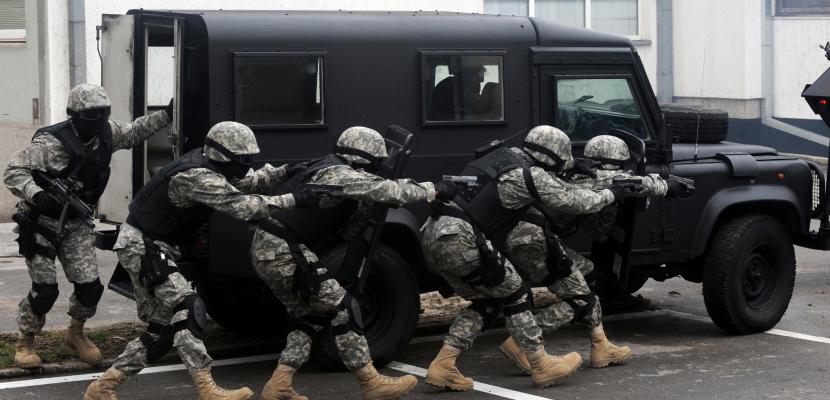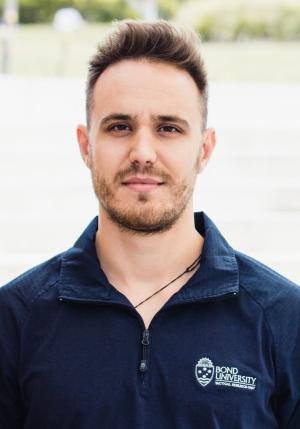
During a crisis, you might think a police officer's stable heartbeat suggests composure and control. In fact, it could signal extreme mental and physical stress.
“The heart is not a metronome,” said Colin Tomes, who is studying heart rate variability (HRV) among police tactical officers such as members of SWAT teams.
“When we’re placed under a lot of stress, the careful fine-tuning that the brain and body do to create HRV is reduced, so less HRV is actually a sign of overstress in many instances.”

Dr Tomes is working with the Tactical Research Unit (TRU) at Bond University to measure the cumulative stress - known as allostatic load - faced by elite police units.
HRV is a key indicator of allostatic load and the subject of Dr Tomes’ doctoral thesis.
He worked with specialist police in Australia and the US and saw firsthand how personnel were subject to extraordinary demands during their selection, training and operations.
“HRV is a powerful window into the complex mechanisms regulating the brain and heart,” Dr Tomes said.
“It can tell us about how the body responds to physical and mental stress and is another way of finding out what’s going on inside the bodies of some of the most under-pressure individuals on Earth.
“Much like professional athletes, these personnel might suffer injuries or ill health from the rigor of their jobs and my research aims to bring the measurement of HRV to police units as a way of measuring potential overstress.”
For Dr Tomes’ study, personnel wore electrocardiogram monitors in the field on real life deployments, with the researchers remotely viewing the real time physiological data.
Apart from heart rate, the harnesses also beamed details of location, body positions, movement speed and skin temperature.
Dr Tomes’ studies also delved into the use of HRV in specialist police recruitment processes.
He also looked at the differences in HRV between trainees who got through difficult selection training and those who weren’t successful.
“What expert observers found and what I found lined up pretty much 100 percent of the time,” he said.
“It was great to be able to offer the selection staff some objective data that confirmed what they were seeing in candidate performance.
“If a candidate was doing well, his or her HRV was generally higher than their peers, and if a candidate was struggling, their HRV was usually lower.”
Dr Tomes also examined HRV during realistic tactical scenarios after overnight shifts, considering the impact of sleep deprivation.
“We saw marked differences in HRV between officers that worked overnight and those that were off duty,” he said.
“While everyone in this line of work knows that they must do the job no matter how tired they might be, it is still a good data point for leaders to demonstrate the need for more support and potential impacts of when these specialist police may be called out.
“The overall aim is to contribute to the health and performance of those on the front lines. it’s an important missing piece of the law enforcement puzzle that we’re putting together.”
Philadelphia-based Dr Tomes, 29, is a physiotherapist with an undergraduate degree in Athletic Training and a Doctor of Physiotherapy degree completed at Bond University.
He is also a US Air Force veteran.
“For me it was a guided transition out of the military and into academia with Bond and its former Australian Army infantry soldier and uniformed physiotherapist Dr Rob Orr and fellow TRU team members Dr Ben Schram and Dr Elisa Canetti, making it work,” he said.

